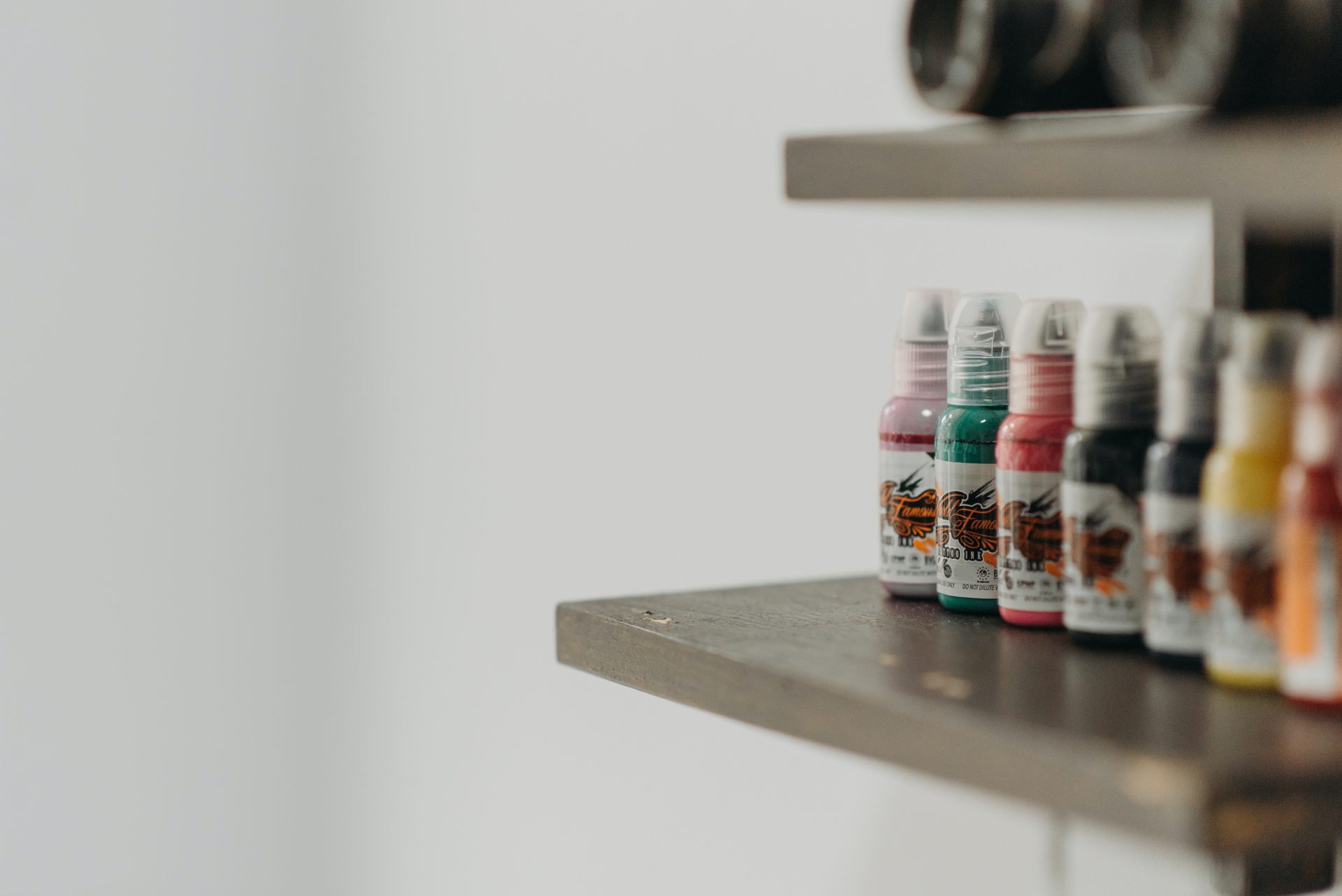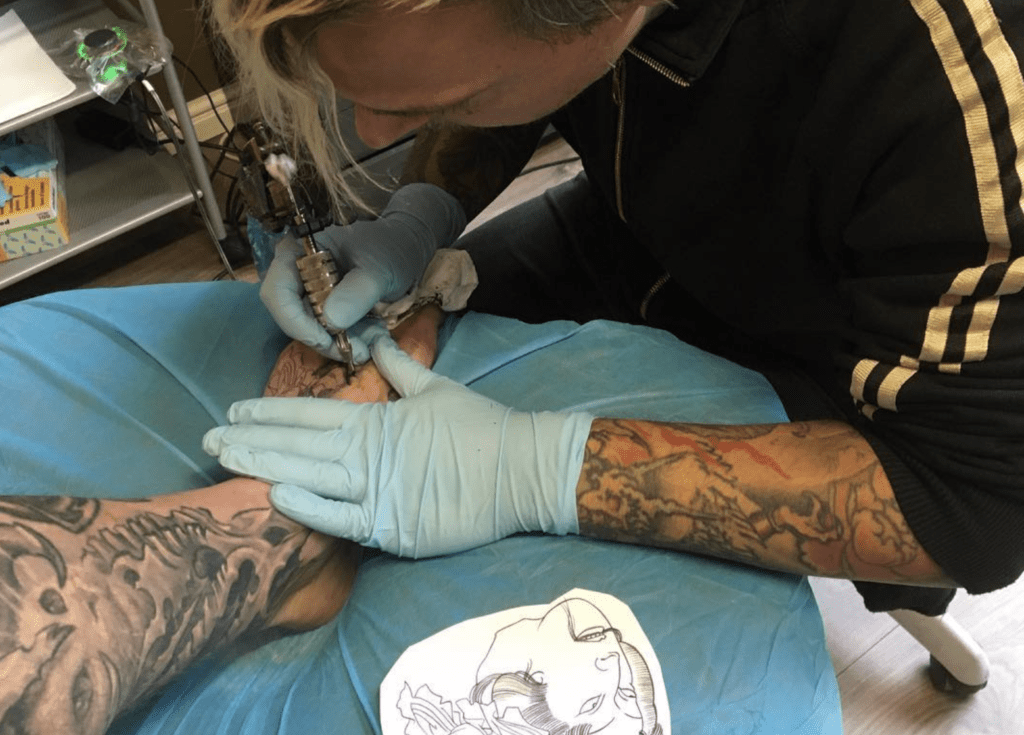An EU-wide ban on tattoo ink ingredients has left many tattoo artists in Belgium at a loss and follows two years of restrictions that have heavily affected the sector.
The long-expected ban on isopropanol, a common constituent of many tattoo inks, under the European Union's Reach regulation applies to all chemical substances and was announced in 2021; it came into force on Tuesday 4 January.
However, a shortage of inks that conform with these new rules means that most of Belgium's approximately 2,000 tattoo shops now have little choice but to close doors rather than work with the banned inks illegally. Yet after being forced to close so many times during the coronavirus lockdowns, further closures would be financially crippling for many.
"This is really the straw that broke the camel's back," Wim Van Muylder, chairman of the Belgian Bond of Tattooists (BBT) and artist at his own parlour, Duck Art Tattoo in Sint-Katelijne-Waver, told The Brussels Times. He says that the government's lack of understanding of the sector is making matters worse.
"Again it is us who has to bear a large chunk of the financial consequences of a government decision; for many this is a very bitter pill to swallow."
Questions left unanswered
The new regulations aim to protect people and the environment from "risks that can be posed by chemicals." But although some substances in tattoo inks have been proven to be carcinogenic, no direct link between them and cancer has yet been found.
From Tuesday, over 4,000 hazardous chemicals used in tattoo ink that were previously unregulated, will be banned. This includes isopropanol, a common ingredient in many products such as antiseptics, disinfectants, and detergents, as well as tattoo inks. In some cases, it can irritate the eyes and cause nerve damage.
Although the ban for some pigments (namely Blue 15 and Green 7) has been postponed by a year to allow businesses more time to find safe alternatives, there are very few inks that do not contain isopropanol.
Most alternative inks that do comply with the new measures are in shades of black, grey and white. For coloured inks, the ban is causing serious supply issues across the EU.

The new rules are expected to have the biggest impact on tattoo artists who work mostly with coloured inks. Credit: Pavel Danilyuk/Pexels
Following the announcement, the BBT asked the government for a longer transition period and called for an open dialogue between the government and industry actors to reach a workable solution.
"We asked the government these questions one year ago when we found out that this legislation was coming. We wanted to know how they were going to deal with that, but to this day, we still haven't got a decent answer," Van Muylder said, adding that at every level of the government, the questions were simply deferred to cabinets and ministers.
Lack of understanding
Van Muylder stressed that the BBT supports working with Reach-conform inks. But the current shortage of accepted inks makes it unfeasible to follow these new rules from Tuesday onwards.
"I think that at the moment about 30% of tattoo shops in Belgium are supplied with Reach-conform inks. And these are only monochrome tints: there are still no colour inks readily available on the Belgian market that are in line with these new rules. So we are indeed at a loss, to put it mildly."
Related News
- Ban on many tattoo inks will leave artists high and dry
- What changes from 1 January in Belgium?
- Closing cultural sector 'inconceivable'; €1 million support for Brussels nightclubs
Those in the industry feel that the government does not properly understand their business and has failed to make an effort to engage with the sector. "This is why we want to consult with them, so we can find a workable decision," Van Muylder added.
"We also asked whether there would be a replacement income for tattoo artists who are no longer able to work because they cannot get their hands on inks that are legal in the EU by Tuesday, but again we have not received an answer."
In November, Federal Health Minister Frank Vandenbroucke announced that checks would be carried out once the measure comes into force. Any tattoo artist who continues using ink containing isopropyl alcohol after Tuesday is breaking the law and risks being closed down and fined. Yet exactly how compliance will be monitored is unclear.
Losing passion for profession
Aside from the financial loss tattoo parlours face, Van Muylder said that the government's lack of understanding and unfair treatment is frustrating many tattoo artists to the point of considering a different profession.
"Adding all these standards and rules diminishes the artistic aspect of the trade," he said, adding that artists do understand the need for rules but that too many regulations stifle creativity.
"We have been knocking on the government's doors for years now, trying to tackle issues and malpractices in our sector, but we never get much response. This last measure is just another drop in the ocean."

